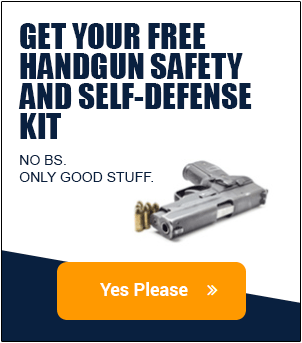In late June some 100 Milwaukee, Wisconsin, residents gathered to discuss Milwaukee’s crime problem with the city’s police chief Ed Flynn, Milwaukee Police Association President Michael Crivello, and Director of the Center for Problem-Oriented Policing Michael Scott. Flynn is speaking out about what he perceives is the effect the city’s five-year-old concealed carry law has had on violent crime.
According to WTMG-TV Milwaukee, Flynn stated an overwhelming majority of arrested felons in the city eventually take plea deals that become misdemeanors—and only convicted felons, or those convicted of three misdemeanors within five years, are barred from carrying a concealed weapon.
“It’s an irresponsible law passed by irresponsible legislatures who are more interested in ideological points than saving lives,” Flynn stated. “And I sure as hell would like some more community outreach about that… too many public officials are silent on it.”
His outrage stems from violent criminals pleading down their sentences and being convicted of misdemeanors rather than chance felony convictions. The result, he says, is multi-time violent offenders legally owning and carrying guns.
But plea bargaining saves time and money, and that’s often why it is used. Plea deals reduce the load on the courts.
And plea agreements for gun charges are affecting crime rates in other ways, too.
A 2014 USA Today story tells the story of Leandrew Beasley, an Indianapolis, Indiana, drug dealer with a violent history. Shortly after getting out of prison in 2012, Beasley participated in a deadly Indianapolis shootout. More than 40 shots were fired, leaving one man dead.
According to the report: Beasley had twice been charged with possession of a firearm by a serious violent felon, an offense specifically designed to reduce the murder rate. The crimes carried a 20-year prison sentence. But twice prosecutors dropped the gun charge, allowing Beasley to plead guilty to a lesser offense and escape a long prison term.
The Indianapolis Star did a review of every gun charge from 2009 to 2014 and found that prosecutors–Democrats and Republicans–dismissed 3,059 gun charges, including 1,508 felony counts—371 dismissals were charges for possession of a firearm by a violent felon. More than half of the felony gun charges were dismissed, usually in plea agreements. Possession of a firearm by a violent felon was dismissed in 41 percent of cases.
Plea agreements are often a contentious subject, no matter the charge. It often feels like justice has not been served. But when pleading down is allowing criminals with guns to stay on the streets, maybe it’s time to take another look at this bargaining tool.

